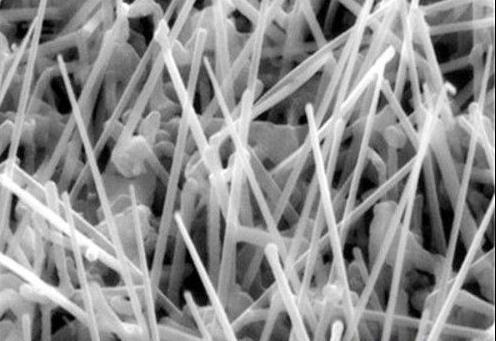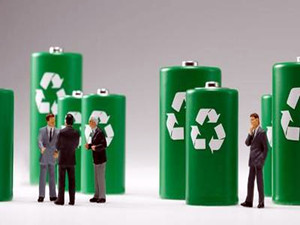Hydrogen VS Lithium Batteries
Oct 29, 2019 Pageview:1735
Most of the devices and electric vehicles we use today run on power from batteries. And these batteries often rely on the chemistry of lithium ions or lead-acid batteries. These batteries are used to store the energy generated outside the vehicle and use it to generate mechanical movements or car whatever device it is. Hydrogen fuel cells (the technology which hydrogen battery operates on) is relatively an old technology developed by Sir William Grove in 1839 and has been fine-tuned over the years. The cells also make it possible to store energy as hydrogen to power most of the electric devices we use, including electric vehicles.
Similar to the other batteries, a hydrogen fuel cell uses chemical reactions to generate energy similar to electricity. In particular, hydrogen fuel cells while working generates electricity, heat, and water from the combination of hydrogen and oxygen.
Fuel cells are present at the anode and cathode surrounding the electrolyte which is called synthetic polymer membrane. It separates the hydrogen from the oxygen and allows only the passage of specific ions (i.e the H+ or the protons). The hydrogen atoms through the anode enter the fuel cell. There, they are stripped of the electrons they carry. These electrons then migrate as electricity through the devices’ circuit to the cathode. Positively charged hydrogen atoms (or what is known as protons) then cross the membrane to combine with oxygen and the electrons to form water. Each fuel cell generates relatively little energy and voltage and must be stacked in series and in parallel just like the lithium-ion cells to achieve the desired voltage and maximum current the device needs.
Do lithium-ion batteries emit hydrogen?
The production and development of lithium-ion batteries have progressed greatly to the point where there are now high-performance lithium-ion batteries for telecommunication industry applications. These batteries provide various advantages of a higher degree compared to those by the lead batteries, in terms of weight and volume and even in terms of a higher energy density. Lithium-ion batteries do not emit hydrogen gas, and they have a stable float state of current, regardless of the temperature of the battery. The thermal runway possibility caused by a higher float current and at a higher temperature is considerably reduced in lithium-ion batteries. There is also an issue of safety which lithium-ion batteries help to solve. The operation of lithium-ion cells is safer because the battery relies on built-in battery protection functions. The internal protection functions can, for example, include cell balancing, contactor, current limitation, and slow blowing fuse. In the telecom industry application, lithium-ion batteries form a part of the power plant which includes controllers, rectifiers, cables of various sizes and distributors.
Will hydrogen battery technology prevail over lithium batteries?
Although hydrogen batteries are perceived to provide clean energy, it is also faced with a whole lot of disadvantages. First, the hydrogen is majorly obtained through electrolysis from water, and this is essentially a reversed fuel cell that requires both electricity combining with water to produce the hydrogen and oxygen required to power the battery. The primary source of this electricity can be formed anywhere, ranging from renewable energies to coal, and others depending on your location and what is obtainable where you are in the world. As a result, hydrogen production can either be very clean or very dirty when compared to the typical gasoline car. Unfortunately, the latter is more likely to be the case because most of the electricity used is generated from Earth.
Another problem is that the storage of hydrogen in gaseous form is expensive and requires a lot of energy. Sometimes up to half of the energy it even contains, and the energy it requires maybe even more if it is stored in liquid form at cryogenic temperature. Also, this form of energy is highly flammable, and it tends to find an escape from the containment and then reacts with metals, consequently making them fragile or brittle. In the end, even though Hydrogen is all around us, it is difficult, and not only dangerous but also expensive to produce, store and then transport.
Hydrogen battery cells can also work with water, and not with steam or ice. Therefore, it is important to keep the internal temperature under control and the heat must be dissipated continuously by functional radiators and several cooling channels. These results in a significant increase in weight. Also, the issue of starting machines powered by hydrogen batteries during days of low temperatures can be very complicated and may be impractical in places where temperatures tend to be below zero or around freezing point.
While hydrogen fuel cells are potentially very clean and are energy-dense, they are also easily rechargeable sources of energy for various applications including electric vehicles and in other systems, using them on a large scale is currently not feasible. Their operations are currently complicated, and their application is not only expensive but also dangerous to use.
To put in perspective, while lithium-ion batteries are less dense and are slower to recharge, it is also clean, very cheap, and even easier and safer to use. In particular, cylindrical lithium-ion cells that are used in SIERRA and FX applications are very stable and are also safe to use.
These and many more reasons are why it may be very difficult and somewhat impractical for Hydrogen battery technology to prevail over Lithium-ion batteries for now. Then, in the future, once there is sufficient development of the technology and the challenges mentioned above are finally fixed, we may start considering hydrogen batteries to as an excellent solution in other to increase the use of power and reduce the time it takes to charge devices, especially heavy-duty machines like electric vehicles. But currently, lithium-ion technology remains the best solution for anyone who wants a high-performance source of power to provide energy for their devices.
Application of hydrogen and lithium batteries.
Hydrogen and lithium-ion batteries can be applied in a lot of applications. They can both be used to power domestic equipment, heavy-duty machines, electric cars and a lot more. Lithium-ion cells can also be used to power small devices like Laptops, mobile phones, etc. as well as Hydrogen battery technology too.
- Prev Article: Comparison Graphene Battery VS Lithium Battery
- Next Article: Lithium Ion Solar Battery Price Analysis
Leave Message
Hottest Categories
-
Hottest Industry News
-
Latest Industry News











